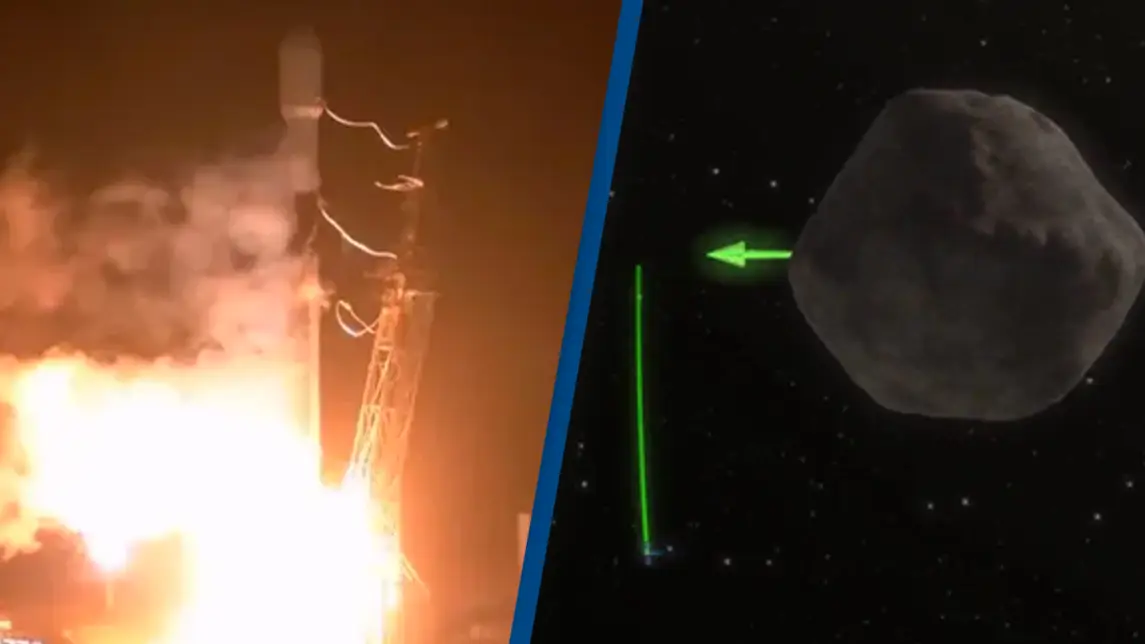
NASA will intentionally crash one of its spacecraft into an asteroid later this month in a test to help them protect Earth from future catastrophes.
The space agency will use The Double Asteroid Redirect Test spacecraft, otherwise known as DART, on 26 September.
The spacecraft will be used as a battering ram to crash into an asteroid not too far away from Earth.
In a statement on Thursday (8 September), NASA said: "While the asteroid poses no threat to Earth, this is the world's first test of the kinetic impact technique, using a spacecraft to deflect an asteroid for planetary defense."
Advert
A SpaceX Falcon 9 rocket launched with DART from the Vandenberg Air Force Base in California to begin this journey in November last year.

Ten months later, DART will catch up to the asteroid by completing three trajectory correction manoeuvres before 26 September.
NASA says the final manoeuvre that will take place approximately 24 hours before the collision on 25 September, will allow the navigation team to know the position of the asteroid within two kilometres.
Scientists have warned that each manoeuvre will reduce the margin of error for the DART's required trajectory to impact the asteroid.
The spacecraft recently got a first look at the double-asteroid system known as Didymos where the target asteroid Dimorphos is located.
An image taken was around 20 million miles away and showed the system to be quite faint, however, astronomers could pinpoint the exact location of the target asteroid.
Julie Bellerose, the DART navigation lead at NASA's Jet Propulsion Laboratory, said: "Seeing the DRACO images of Didymos for the first time, we can iron out the best settings for DRACO and fine-tune the software.
"In September, we'll refine where DART is aiming by getting a more precise determination of Didymos' location."
If DART hits the asteroid at 15,000mph as planned later this month, it will test the kinetic impactor earth defense theory.
Astronomer Andy Rivkin explained the reasoning behind this theory: "The point of a kinetic impactor is you ram your spacecraft into the asteroid you're worried about, and then you change its orbit around the sun by doing that."
If this theory ends up working, the plan is to use the same technique on larger asteroids.
NASA is marking the occasion by holding a social event which includes a tour of the facilities at the Johns Hopkins APL and the chance to ask questions to experts who are involved with the mission.
If you have a story you want to tell, send it to UNILAD via [email protected]
